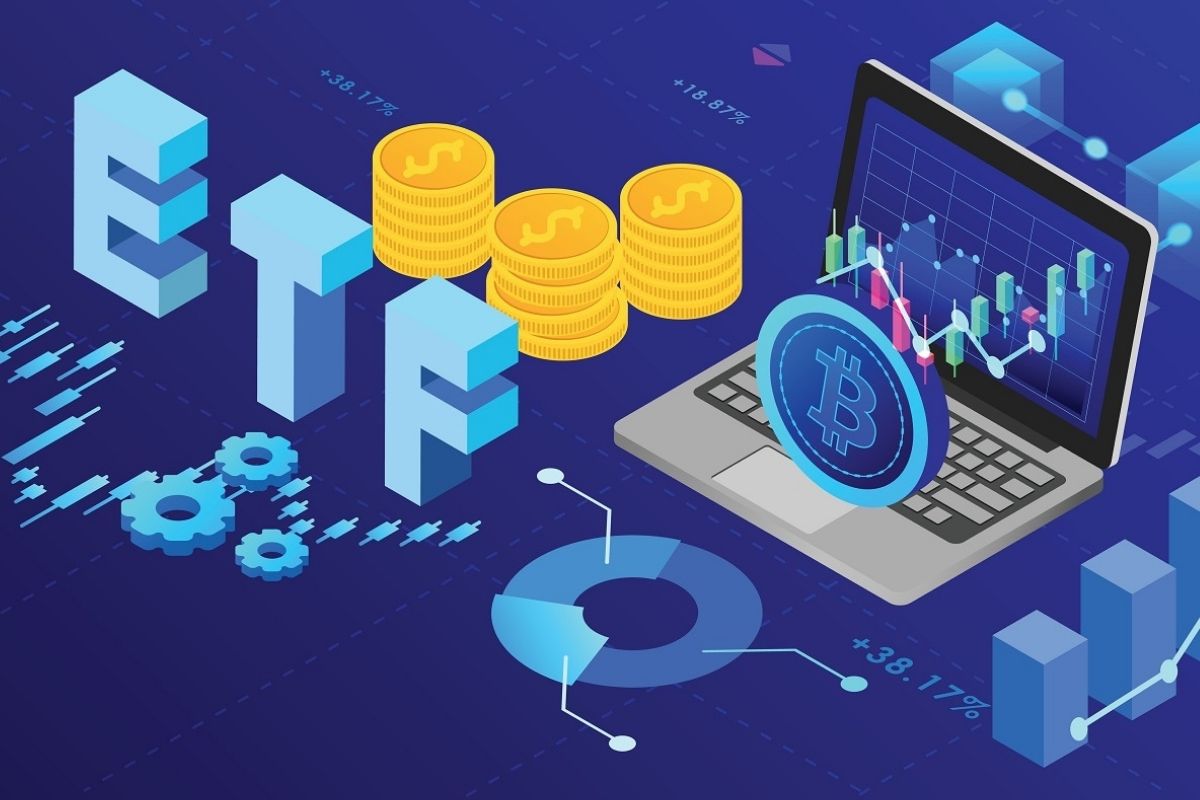Crypto and Blockchain ETFs: A Synopsis
- February 16, 2022
- Jennifer Moore

The past year saw the meteoric rise of blockchain and cryptocurrencies into the mainstream. Blockchain is gaining prominence in the technosphere due to its versatility and compatibility with other technologies. Crypto assets on the other hand have become one of the most popular trading options, ranking up with forex, stock equities, and commodities. The global rise in adoption and subsequent legalization has led to the development of trading marketplace options for ETFs, Futures, derivatives, and more.
Also Read: Synergy Among Cryptocurrency Exchanges Essential for the Future
What are ETFs?
ETFs stand for exchange-traded funds and refer to certain security options with pooled investment. They function in a way similar to mutual funds with the main difference lying in trading options. Unlike mutual funds, ETFs offer trading options similar to conventional equity stocks within an exchange. Depending upon their functions, ETFs can be used for trading in both single or multiple security or commodity options, and also for tracking certain investment strategies.
Similar to stocks equities, ETFs are bought and sold throughout the day during exchange hours. Hence, valuations may change throughout the day. ETFs also consist of multiple types of investment- both national and international, offering traders decreased expense ratios and less brokerage.
Also Read : Bitcoin and Dark Matter: An Introspection through Finance, Physics, and Cosmology
Blockchain ETFs
ETFs can make investments in companies specializing in blockchain products. Blockchain ETFs feature capital investments targeted towards enterprises that profit from delivering blockchain solutions.
Blockchain’s DLT (Distributed Ledger Technology) mechanism has been verified as one of the most promising disruptive forces in the world of technology. The technology has been invaluable in optimizing performances across sectors such as finance banking, fintech, IT, logistics, and more. Last but not the least, it is the primary architecture underneath cryptocurrencies.
It is thus easy to figure out the growth potential between companies offering blockchain solutions. ETFs investing in blockchain technology are not investing their capital in volatile crypto markets but in stocks of notable regulated blockchain solutions providers. Examples of blockchain ETFs include LEGR, BLOK and BLCN.
Also Read : Blockchain Tokenization in Real Estate Asset Management
Crypto ETFs
Crypto ETFs are concerned with the pricing and valuation of cryptos(Single or Multiple). Significant advantages of ETF include low-cost ownership, diversification, knowledge outsourcing. Crypto trading markets are highly volatile, capable of scaling significant highs and lows within a short time period. Picking the right crypto token at the right time and the right valuation is invaluable. ETFs, offer investors an opportunity and exposure to crypto trading without having to manage the assets all by themselves.
Crypto ETFs are generally classified into the following two categories:
a) ETFs that back physical cryptocurrencies.
b) ETFs that operate on derivatives, futures contracts, and crypto ETPs.
Also Read : Crypto Weekly Update: Bitcoin City, Indian Crypto Ban, Scholarships, and More
Final Words
ETFs are a good way for investors to get acclimatized to the world of crypto trading. Blockchain ETFs focus on regulated IT tech companies specializing in blockchain, and thus less risky. Crypto ETFs on the other hand deals in a volatile market and may need regulatory bodies like the US SEC for tracking prices of crypto assets such as BTC.
One thought on “Crypto and Blockchain ETFs: A Synopsis”
Leave a Reply
Categories
- AI (6)
- Altcoins (10)
- Banking (10)
- Bitcoin (132)
- Bitcoin ETF (11)
- Bitcoin Price (30)
- Blockchain (47)
- Brokering World Hunger Away (16)
- Business (7)
- CBDC (11)
- COVID-19 (3)
- Crypto ATMs (1)
- Crypto Banking (15)
- Crypto Bill (1)
- Crypto broker platform (26)
- Crypto Investment (3)
- Crypto Markets (3)
- Crypto Payment (26)
- Crypto Prices (1)
- Crypto Trading (88)
- Cryptocurrency (365)
- Cryptocurrency Exchange (95)
- Data Visualization (2)
- Decentralized Finance (7)
- DeFi Payment (9)
- DEX (3)
- Digital Currency (22)
- Ethereum (2)
- FAQ (6)
- Finance (24)
- Financial Equality (4)
- Financial Freedom (8)
- Forex (24)
- ICO (1)
- Investment (11)
- Mining (3)
- News (64)
- NFTs (2)
- P2P (1)
- PayBitoPro (606)
- PayBitoPro Coin Listing (6)
- PayBitoPro Exchange (2)
- Post COVID Digital Transformation (1)
- Press Release (130)
- Privacy & Security (3)
- Real Estate (1)
- Stablecoin (4)
- Technology (14)
- Uncategorized (2)
- US Presidential Election (2)
- Utility Coin (1)
- Web3 Wallets (1)
- White Label Crypto Broker Solution (1)
- White Label Crypto Exchange (6)






Hi there, You’ve done a fantastic job. I’ll definitely digg it
and personally suggest it to my friends. I’m sure they’ll be benefited from this website.